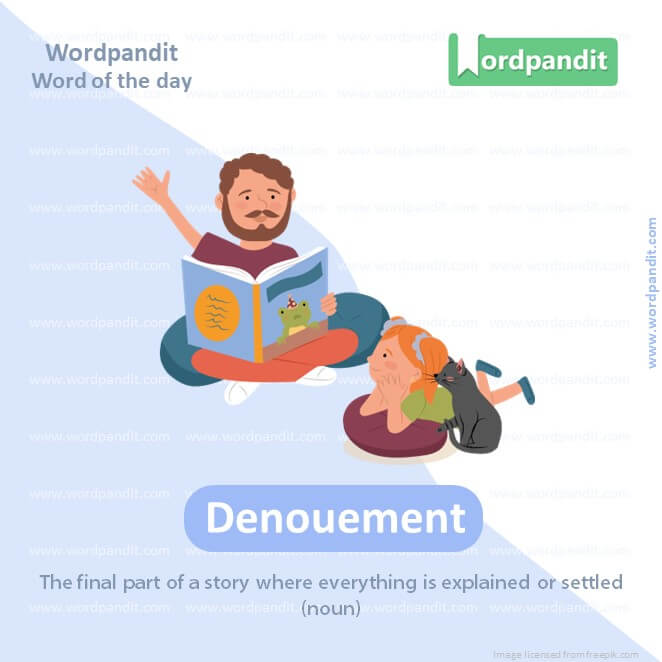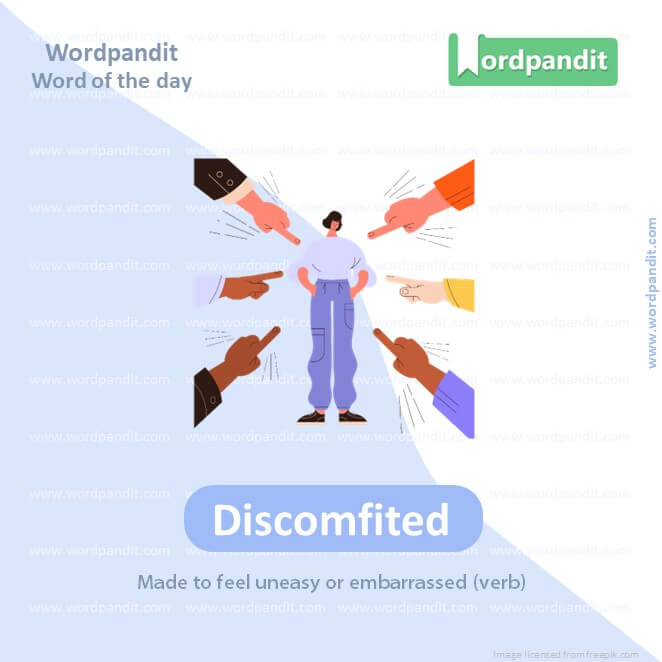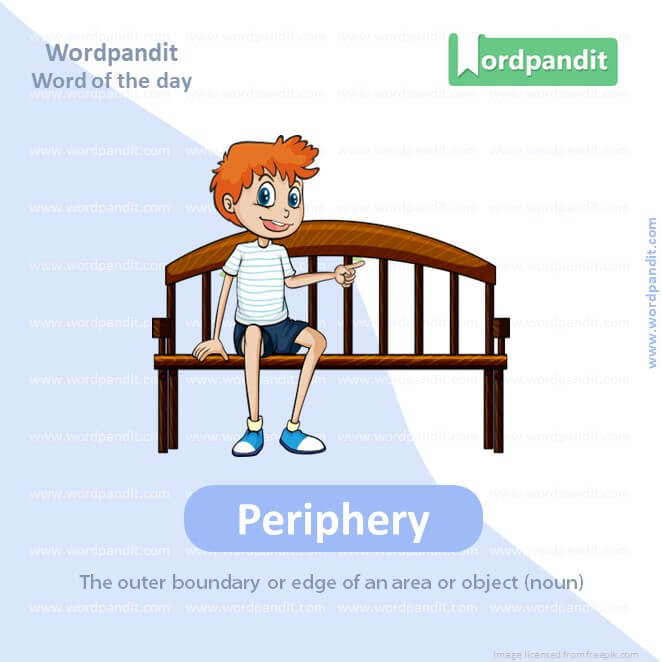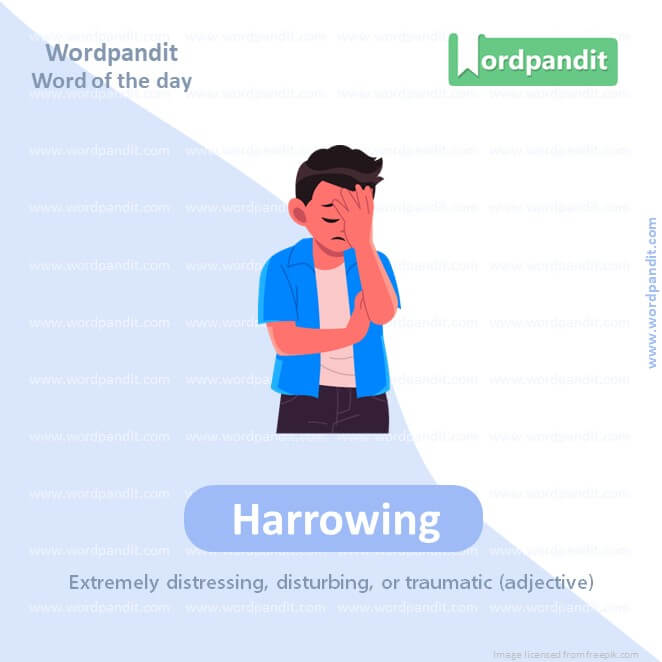Daily Vocabulary Words: Enhance Your Lexicon with Leading Newspapers & Publications
Welcome to the Daily Vocabulary section at Wordpandit!
Our mission is straightforward: to bring you essential vocabulary words featured in top newspapers and publications worldwide. By focusing on words you’ll encounter in renowned sources, we aim to help you enhance your vocabulary effectively and practically.
Our selection includes words from:
– The New York Times
– The Washington Post
– Scientific American
– BBC
– The Guardian
– Psychology Today
– Wall Street Journal
– The Economist
– The Hindu
– The Times of India
– The Economic Times
– Hindustan Times
– Live Mint
– The Indian Express
– And many more.
We are committed to your vocabulary development. Simply visit this section regularly and explore the daily posts. This is your go-to repository for commonly used words, providing significant practical benefits by familiarizing you with vocabulary from the leading publications listed above.
Make it a habit to visit our website daily and expand your lexicon with words from top newspapers and publications. (edited)
WORD-1: FRUITION
CONTEXT: The desperation of social conservatives to establish caste-class exclusivism in academic campuses will see fruition if right-wing populism remains at the helm.
SOURCE: The Hindu
EXPLANATORY PARAGRAPH: Imagine planting a seed and waiting for it to grow into a big, beautiful flower. Fruition is when all your hard work and patience finally pay off, and you see the results you were hoping for.
MEANING: The point at which a plan or project is successfully completed (noun).
PRONUNCIATION: froo-ISH-un
SYNONYMS: Fulfillment, realization, completion, achievement, success, attainment
USAGE EXAMPLES:
1. After months of planning, the project came to fruition.
2. His dreams of becoming a writer finally reached fruition.
3. The garden’s beautiful blooms were the fruition of her hard work.
4. The plan’s fruition brought joy to everyone involved.
WORD-2: ONSLAUGHT
CONTEXT: The resistance to this onslaught must be more prudent. If our adherence to political correctness crosses a threshold level, the liberal fabric would be pummelled by the social oligarchs.
SOURCE: The Hindu
EXPLANATORY PARAGRAPH: Imagine a big wave at the beach suddenly crashing down and covering everything. An onslaught is a very powerful and sudden attack that can overwhelm you.
MEANING: A fierce or destructive attack (noun).
PRONUNCIATION: ON-slawt
SYNONYMS: Assault, attack, barrage, blitz, offensive, invasion
USAGE EXAMPLES:
1. The small village faced an onslaught from the invaders.
2. She was not prepared for the onslaught of questions.
3. The onslaught of rain flooded the streets.
4. They struggled to defend against the onslaught.
WORD-3: PUMMELLED
CONTEXT: The resistance to this onslaught must be more prudent. If our adherence to political correctness crosses a threshold level, the liberal fabric would be pummelled by the social oligarchs.
SOURCE: The Hindu
EXPLANATORY PARAGRAPH: Imagine hitting a pillow again and again with your fists. Pummelled means to hit something repeatedly and with a lot of force.
MEANING: To strike repeatedly, typically with fists (verb).
PRONUNCIATION: PUM-uhld
SYNONYMS: Battered, beaten, pounded, thrashed, thumped, hammered
USAGE EXAMPLES:
1. The boxer pummelled his opponent in the ring.
2. Waves pummelled the shore during the storm.
3. She pummelled the dough to make it soft.
4. He was pummelled with criticism after the mistake.
WORD-4: PRUDENT
CONTEXT: The resistance to this onslaught must be more prudent. If our adherence to political correctness crosses a threshold level, the liberal fabric would be pummelled by the social oligarchs.
SOURCE: The Hindu
EXPLANATORY PARAGRAPH: Imagine you have only a little bit of candy, and you decide to eat just one piece a day to make it last longer. Being prudent means being very careful and wise about your choices.
MEANING: Acting with or showing care and thought for the future (adjective).
PRONUNCIATION: PROO-dent
SYNONYMS: Wise, careful, cautious, sensible, judicious, shrewd
USAGE EXAMPLES:
1. It’s prudent to save money for emergencies.
2. She made a prudent decision to study for the test.
3. The company took prudent steps to ensure safety.
4. Being prudent can help you avoid problems.
WORD-5: COGNITIVE
CONTEXT: When our ability to falsify our own propositions remains unassailable, the real cognitive contribution begins in academia.
SOURCE: The Hindu
EXPLANATORY PARAGRAPH: Imagine using your brain to solve puzzles and remember things. Cognitive means anything related to thinking, understanding, and remembering.
MEANING: Relating to mental processes like thinking, understanding, and remembering (adjective).
PRONUNCIATION: KOG-ni-tiv
SYNONYMS: Mental, intellectual, perceptual, rational, cerebral, psychological
USAGE EXAMPLES:
1. The game helps improve cognitive skills.
2. Cognitive development is important for young children.
3. She has a keen cognitive ability to solve problems.
4. They studied the cognitive effects of aging.

WORD-6: DENOUEMENT
CONTEXT: The inflated strength of right-wing populism, unscrupulous political correctness would be singularly responsible for the denouement of our public academic institutions.
SOURCE: The Hindu
EXPLANATORY PARAGRAPH: Imagine a story where everything finally makes sense at the end, like when you finish a puzzle and see the complete picture. Denouement is the final part of a story where everything is resolved and explained.
MEANING: The final part of a story where everything is explained or settled (noun)
PRONUNCIATION: day-noo-MAWN
SYNONYMS: Conclusion, resolution, finale, ending, outcome, culmination
USAGE EXAMPLES:
1. The denouement of the mystery novel was surprising.
2. Everyone enjoyed the denouement of the play.
3. The movie’s denouement tied up all the loose ends.
4. The denouement brought closure to the characters’ journeys.

WORD-7: DISCOMFITED
CONTEXT: The reporter, discomfited perhaps at my tone and at the gender-identifying words, removed all pronouns.
SOURCE: The Hindu
EXPLANATORY PARAGRAPH: Imagine feeling really awkward and unsure, like when you forget your lines in a school play. Discomfited means feeling uncomfortable, embarrassed, or uneasy.
MEANING: Made to feel uneasy or embarrassed (verb)
PRONUNCIATION: dis-KUM-fit-id
SYNONYMS: Embarrassed, unsettled, uneasy, uncomfortable, flustered, disturbed
USAGE EXAMPLES:
1. He was discomfited by the unexpected question.
2. She looked discomfited when she couldn’t remember his name.
3. The loud noise discomfited the baby.
4. They were discomfited by the awkward silence.

WORD-8: COMMEMORATE
CONTEXT: It was an LGBTQAI+ centered story that we were considering doing to commemorate Pride Month, in June.
SOURCE: The Hindu
EXPLANATORY PARAGRAPH: Imagine having a special party or making a memory book to remember a fun day forever. To commemorate means to do something special to remember and honor an important event or person.
MEANING: To honor the memory of someone or something, especially with a ceremony (Verb)
PRONUNCIATION: kuh-MEM-uh-rayt
SYNONYMS: Honor, celebrate, remember, observe, memorialize, mark
USAGE EXAMPLES:
1. We commemorate Independence Day with fireworks.
2. A statue was built to commemorate the hero’s bravery.
3. They held a ceremony to commemorate the anniversary.
4. She wrote a poem to commemorate her grandmother.

WORD-9: PERIPHERY
CONTEXT: It is the people who live on the periphery of society, the many minorities, who have stories to tell — stories laden with grief, pain, shame, guilt, longing, fear.
SOURCE: The Hindu
EXPLANATORY PARAGRAPH: Imagine the edge of a playground where the swings and slides are. The periphery is the outer edge or boundary of a place.
MEANING: The outer boundary or edge of an area or object (noun)
PRONUNCIATION: puh-RIF-er-ee
SYNONYMS: Edge, boundary, border, fringe, outskirts, margin
USAGE EXAMPLES:
1. The park’s periphery was lined with trees.
2. Houses on the periphery of the town are quieter.
3. They stood on the periphery of the crowd.
4. The periphery of the forest was full of wildflowers.

WORD-10: HARROWING
CONTEXT: On January 8, the Supreme Court of India delivered a landmark ruling in the harrowing case of Bilkis Bano.
SOURCE: The Hindu
EXPLANATORY PARAGRAPH: Imagine watching a really scary movie that makes you feel very nervous and worried. Harrowing means something that is very distressing and scary.
MEANING: Extremely distressing, disturbing, or traumatic (adjective)
PRONUNCIATION: HAIR-oh-ing
SYNONYMS: Distressing, terrifying, traumatic, agonizing, frightening, painful
USAGE EXAMPLES:
1. The survivors shared their harrowing experiences.
2. It was a harrowing journey through the storm.
3. The harrowing tale left everyone in tears.
4. She had a harrowing time during the accident.
Vocabulary In English
Dancing within the vibrant scheme of language learning, a profound understanding of ‘vocabulary in English’ is indispensable. These sets of words, serving as the pillars of communication, lay the foundation for effective and fluent exchange of ideas. Yet the question begs, how should one go about mastering ‘vocabulary in English’?
Embracing ‘vocabulary in English’ demands a well-rounded understanding, far more than mere surface memorization. It is of immense benefit to explore a variety of reading materials, such as books, newspapers, magazines, and online content. This broad exposure yields a practical understanding of how and when words are used, thereby enriching your command over ‘vocabulary in English’.
To aid the learning of ‘vocabulary in English’, memory-enhancement techniques come to the rescue. Regularly using flashcards, or applications that reinforce the principles of spaced repetition, can drastically improve memory retention. Aiding this, the use of mnemonic devices to associate words with unique stories or images in your mind has shown to greatly assist recall.
Practical application further paves the way for mastering ‘vocabulary in English’. By using the learnt words actively in your daily conversations, you cement their grasp in memory and understand their practical usage.
Rounding off, regular reviews of ‘vocabulary in English’ is the secret ingredient in the recipe for success. Consistent revision sessions solidify the retention of previously learned words and maintain a fresh connection with them.
To conclude, the path to mastering ‘vocabulary in English’ is an insightful journey, made enjoyable with diverse resources, effective memory techniques, practical usage, and regular review sessions. As you immerse into this linguistic voyage, every word you learn brews a unique tale, enhancing the narrative of your language proficiency and guiding you towards becoming a skilled communicator.













